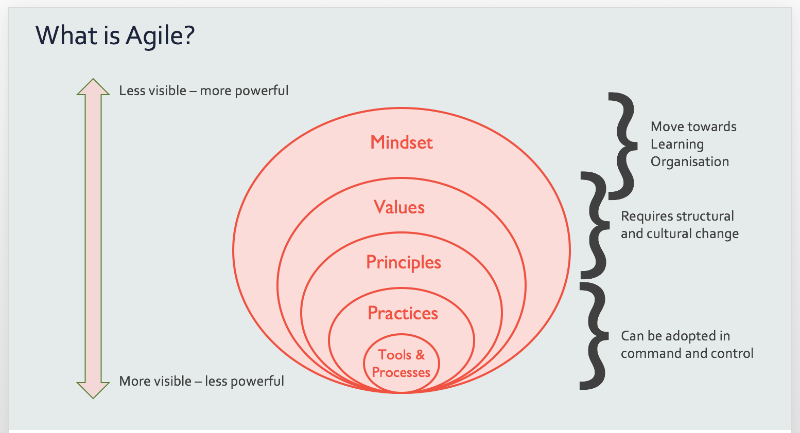Links
-
So, You Want to Read Something about Leadership?
This (overwhelming) curated list touching every aspect of leadership is very nice! It has collections of links to articles about all kind of Leadership and Management related articles. Very useful! Also, nice that it is a Github page, written in Markdown. https://github.com/LappleApple/awesome-leading-and-managing
-

What is Agile?
In this article Simon Powers asks : “What is Agile?” It’s a question that’s been asked (too) many times, but again, it’s in Agile’s nature to keep changing so the question will probably stay around for a while 🙂 The article is about this diagram: The bottom line is: Many organizations think that they’re agile…
-
Why is Why the Most Powerful Word in the Workspace?
Dan Sloan aks to challenge everyone in our workspace with the (sometimes annoying) WHY-Question. Why is this question important? “Why” do we exist? “Why” are we working on these particular Features? What makes it essential for our Customers? “Why” do we use Scrum to optimize business outcomes? How can we make it better and more focused? “Why”…
-
If You Want to be Understood – Listen
Although the example talk is extensive, the message of this article is clear: You should not expect to be able to greatly influence people if you do not spend any time with them, or if you do not hear what they have to say. If they do not talk by themselves, make them talk by…
-
I Want to Be a Laurence
In this article, Simon Kneafsey describes his experience with a scrum master who was educated as an actor. Laurence worked only 2 years as a tester in a scrum team when he volunteered to become a scrum master. The only thing he could do, was learn to ask questions to make the team come up with solutions. Just because…
-
A List of Pitfalls
Barry Overeem wrote a list of common pitfalls in Scrum, you might recognize (a few) in them. Today, the one resonating with me is this one: Demonstrating the results to the Product Owner, instead to the stakeholders We can definitely improve on that one! http://www.barryovereem.com/the-5-most-common-pitfalls-of-the-scrum-events/
-
Read for you: Worrying interpretations of Scrum
Is Scrum just a list with artefacts? A lot is written about Scrum. And Gunther also wrote a good story about signs you may have a wrong idea of it. Basically he states: Scrum is not a list of artefacts, but it’s a state of mind. I totally agree. As a ScrumMaster, I’m not interested…